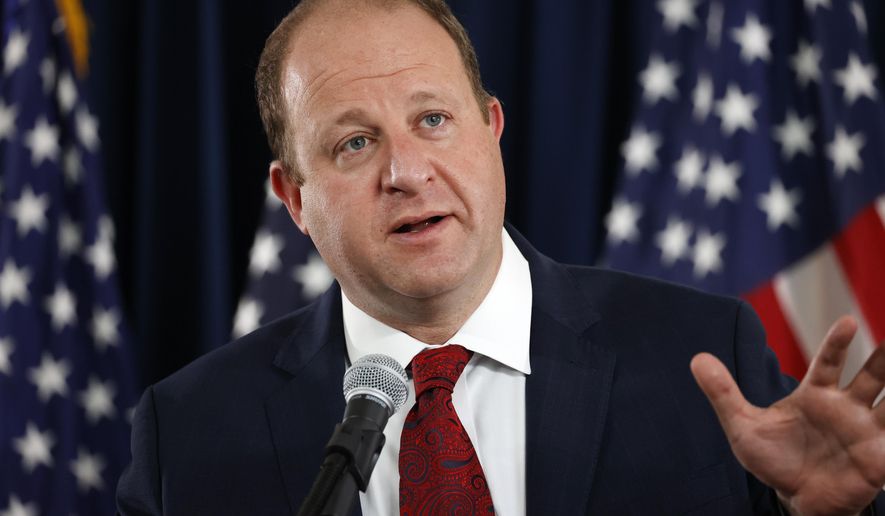DENVER (AP) - Democratic Gov. Jared Polis of Colorado on Tuesday laid out key demands for the next U.S. coronavirus relief package, urging Congress to deliver uninterrupted benefits for the growing ranks of people without jobs, cash for testing and contact tracing, and billions of dollars to backfill long-term losses in state and local government budgets.
Polis warned of dire consequences to the economic welfare of millions of Coloradans and to the state’s ability to contain the pandemic in a letter sent to the state’s congressional delegation as the U.S. Senate begins deliberating the next phase of coronavirus relief while infections surge across the nation.
“The continued uncertainty regarding the extension and funding of key federal programs for Coloradans is making many of our neighbors contemplate extremely difficult choices regarding their financial futures,” Polis said.
In Washington, lawmakers are wrestling with vast differences over the next aid package. Democrats have a $3 trillion proposal and Republicans are offering a $1 trillion plan that would slash a $600 weekly benefit for people who lost their jobs because of the pandemic. The current benefit is expiring.
More than 450,000 people in Colorado have received over $1.7 billion through that benefit and other federal unemployment assistance, Polis said, especially in Colorado’s hard-hit outdoor recreation, tourism and hospitality industries. A total of more than 600,000 Coloradans have filed for unemployment benefits since March.
““We cannot afford to let our citizens struggle with unemployment uncertainty and instability during these difficult times, and suffer even further from a dramatic end to (the $600 benefit) without some kind of transition or additional cash payments while we are still in this health and economic crisis,” the governor said.
Polis has repeatedly expressed frustration with federal shortages of testing supplies, testing facilities and personal protective equipment that have left cash-strapped states to fend for themselves on the open market and devise their own containment strategies.
On Tuesday, he cited a failure by the U.S. Department of Health and Human Services to complete pledges made last spring to provide more than 390,000 test kits and hundreds of thousands of testing swabs. He also said more than 100,000 swabs were delivered but were useless because they weren’t sterile.
Polis urged the congressional delegation to seek at least $60 million to maintain testing of the general population as well as surveillance testing for nursing homes, long-term care facilities and community testing sites.
For most people, the new coronavirus causes mild or moderate symptoms, which can include fever and cough but also milder cases of pneumonia, sometimes requiring hospitalization. The risk of death is greater for older adults and people with other health problems.
More than 44,000 cases have been reported in Colorado and over 1,660 people have died.
State lawmakers struggled to deliver a balanced budget for the fiscal year that started July 1 after cutting more than $3 billion from a $13 billion general spending fund. Polis on Tuesday warned that without flexible federal aid Colorado faces at least a $6 billion budget deficit in the next two fiscal years.
He also noted that previous federal relief left out 59 of Colorado’s 64 counties because they don’t have populations exceeding 500,000 people. Polis urged direct aid to county and local governments.
He joined the National Governors Association in seeking at least $500 billion for states and more for local governments whose tax revenues are dwindling.
Polis is also seeking:
-Extended loans and repayment periods for businesses coping with revenue losses compounded by social distancing limits.
-A separate congressional appropriation to K-12 and higher education institutions under stress from the pandemic.
-Continued support of state programs for rental and mortgage assistance to protect thousands of people from losing their homes.




Please read our comment policy before commenting.